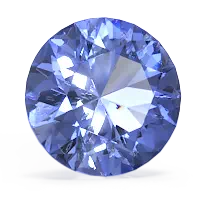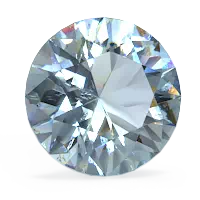

Never more popular, the Tanzanite halo rings feature a beautiful gemstone surrounded by sparkling diamonds. Tanzanite is the new birthstone of December and has a unique purple-blue color. A tanzanite ring is one of the newest fashion trends and is a must for any jewelry collection. A long time favorite of jewelry designers, aquamarine is the birthstone of March. The diamond-like brilliance of an aquamarine ring is sure to attract attention.